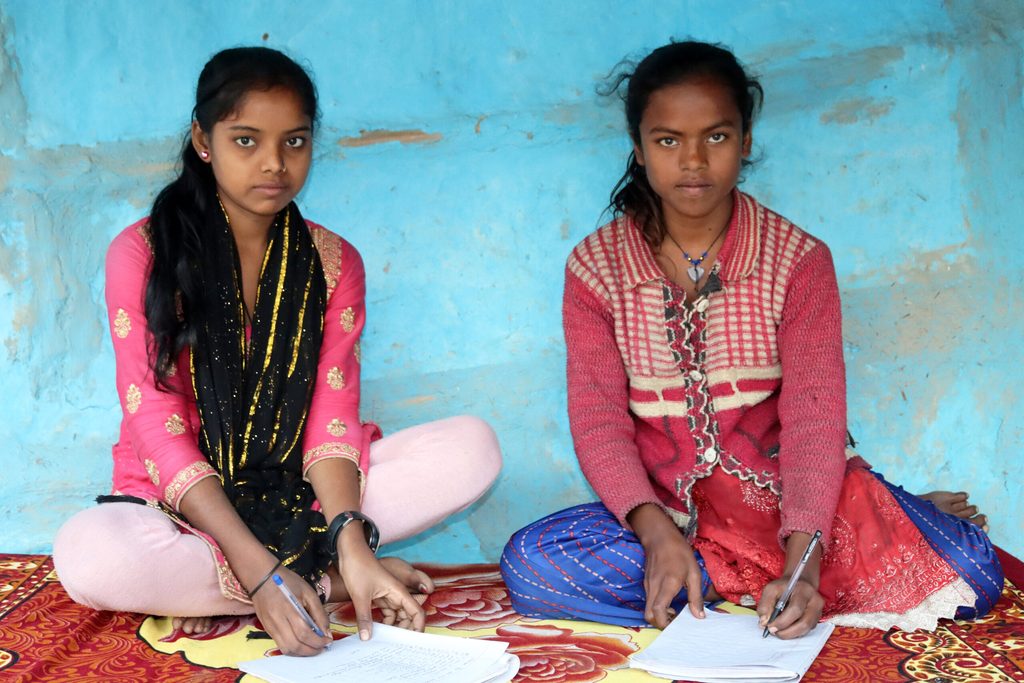Rinki re-engages with education
After years out of school, 16-year-old Rinki from Dhanusa has returned to learning through an accelerated learning programme. Today, she not only excels in her studies but also inspires her parents and community to value girls’ education and say no to child marriage.

Breaking barriers to learning
At 16, Rinki from Dhanusa is proving how education can change not just one girl’s future, but an entire family’s perspective. After years out of school, she enrolled in an Accelerated Learning Programme (ALP) and has made remarkable progress in her studies. Today, she is inspiring her parents and community to see the value of girls’ education.
“In our community, people don’t focus much on girls’ education. They think girls should just stay at home,” says Rinki. “But I believe education is important for everyone, regardless of gender.”
“In our community, people don’t focus much on girls’ education. They think girls should just stay at home.”
Rinki
Rinki’s parents struggled to provide for their children. Her father’s health was damaged by heavy labour, and with little money for school fees, Rinki spent her days doing household chores. Her eldest sister married at 19, cutting short her education, something Rinki was determined not to repeat.
When she learned about the ALP centre, she immediately joined. “ALP is great, especially for girls like me who had problems going to school,” she says. “It is a safe place to learn, and the teachers help me with the maths and language skills I had forgotten.”
A pathway to education and change
ALP centres are designed for children who have dropped out of school or fallen behind. They provide safe spaces where young people can rebuild their confidence, strengthen academic skills, and prepare to rejoin the formal education system. Parents are also encouraged to take an active role, supporting their children’s learning and recognising its long-term importance.
For Rinki, the centre has done more than improve her grades, it has opened her eyes to the wider issues that affect girls in her community. “Here, we also learn about child marriage,” she explains. “I understand now how harmful it is for girls. Education gives us the chance to stand on our own feet, get a job, and only then think about marriage.”
“I understand now how harmful it is for girls. Education gives us the chance to stand on our own feet, get a job, and only then think about marriage.”
Rinki
Her growing awareness has made her a strong advocate at home. “I tell my parents to focus on our education. I remind them that if we study, we can have a better future. I’ve convinced them to support me and my younger sister in school.”
Her parents have listened. They enrolled her younger sister in the ALP programme after seeing Rinki’s determination and progress. “I always encourage my sister to keep learning, no matter what others say,” Rinki says proudly.
Now, both sisters are thriving. Rinki says, “After 9 months of intensive learning, we are preparing to transition into the formal school system.” She further adds, “I want to be a nurse, serving my community and proving that with education, girls can achieve anything.”
“ALP has given me confidence and skills for my journey,” she says. “I want every girl to have this chance.”
About the project
Child, Not Bride is a four-year, multi-sectoral project funded by the Norwegian Broadcasting Corporation (NRK Telethon) that focuses on education, developing youth leadership, and strengthening youth economic empowerment. The project is led by Plan International and implemented by our local partners, BEE Group in Bardiya and Aasaman Nepal in Dhanusa.
One of the project’s key strategies is the ALP, which aims to bridge the gap for children who have dropped out of school or experienced interruptions in their learning. The ALP centres play a pivotal role in building children’s confidence, enabling them to return to formal schooling and stay engaged in their education.
Through personalised support, a tailored curriculum, and a nurturing environment, ALP aims to break down barriers that prevent children from accessing education, ultimately fostering a generation of empowered and educated individuals ready to make a positive contribution to their communities.


